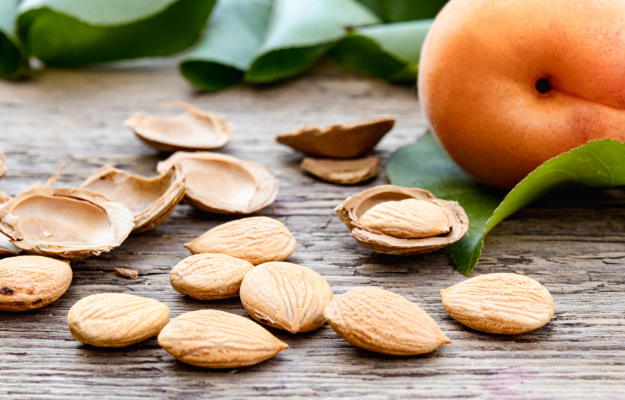
Unlocking the Potential: Apricot Seeds Benefits and Safety Considerations
Apricot seeds, nestled within the hard pit of the apricot fruit, have garnered attention for their purported health benefits. While some tout them as a superfood with cancer-fighting properties, others raise concerns about their potential toxicity. This article delves into the science-backed apricot seeds benefits, explores the risks associated with their consumption, and provides a balanced perspective on their place in a healthy diet.
What Are Apricot Seeds?
Apricot seeds, also known as kernels, are the seeds found inside the hard pit of an apricot. They resemble small almonds and have a distinct, slightly bitter taste. This bitterness is due to the presence of amygdalin, a naturally occurring compound found in various fruits and vegetables, including almonds, apples, and plums. Amygdalin, when metabolized in the body, can release cyanide, a toxic substance. The concentration of amygdalin varies depending on the apricot variety.
Potential Apricot Seeds Benefits: A Closer Look
Despite the controversy surrounding their safety, apricot seeds do contain certain nutrients and compounds that may offer potential health benefits. However, it’s crucial to emphasize that these benefits are often based on preliminary research and require further investigation.
Source of Nutrients
Apricot seeds contain several nutrients, including:
- Vitamin E: An antioxidant that protects cells from damage.
- Healthy Fats: Essential for hormone production and cell function.
- Fiber: Promotes digestive health and helps regulate blood sugar levels.
Potential Anti-inflammatory Properties
Some studies suggest that compounds found in apricot seeds may possess anti-inflammatory properties. Inflammation is linked to various chronic diseases, and reducing inflammation could potentially offer health benefits. However, more research is needed to confirm these findings and determine the specific mechanisms involved.
The Amygdalin Controversy: Cancer and Apricot Seeds
The most controversial aspect of apricot seeds is their potential role in cancer treatment. Amygdalin, also known as laetrile or vitamin B17 (though not a true vitamin), has been promoted as an alternative cancer therapy for decades. The theory behind this claim is that amygdalin selectively targets and destroys cancer cells by releasing cyanide within them. However, scientific evidence supporting this claim is limited and often conflicting.
Numerous clinical trials have investigated the efficacy of laetrile in treating cancer, and the overwhelming consensus is that it is not an effective cancer treatment. Major cancer organizations, such as the National Cancer Institute and the American Cancer Society, have concluded that laetrile is not a proven cancer treatment and may even be harmful. [See also: Alternative Cancer Treatments: What Works and What Doesn’t]
Risks and Safety Concerns: The Cyanide Factor
The primary concern associated with apricot seeds consumption is the risk of cyanide poisoning. When amygdalin breaks down in the body, it releases cyanide, a potent toxin that can interfere with cellular respiration and lead to various health problems. The severity of cyanide poisoning depends on the amount of amygdalin consumed and individual factors such as body weight and overall health.
Symptoms of Cyanide Poisoning
Symptoms of cyanide poisoning can range from mild to severe and may include:
- Dizziness
- Headache
- Nausea and vomiting
- Rapid breathing
- Weakness
- Confusion
- Seizures
- Coma
In severe cases, cyanide poisoning can be fatal. Children are particularly vulnerable due to their lower body weight.
Regulatory Guidelines and Safe Consumption
Due to the potential for cyanide poisoning, various regulatory agencies have established guidelines regarding the safe consumption of apricot seeds. The European Food Safety Authority (EFSA) has set an acute reference dose (ARfD) for cyanide, which is the estimated amount of a substance that can be ingested over a short period without posing a significant health risk. EFSA recommends that consumers avoid consuming apricot seeds altogether, or limit their intake to a very small amount. Other regulatory bodies have issued similar warnings.
It’s important to note that the amygdalin content of apricot seeds can vary significantly depending on the variety and growing conditions. Therefore, it’s difficult to determine a safe dosage with certainty. [See also: Understanding Food Safety Regulations]
The Importance of Informed Decision-Making
While some individuals may choose to consume apricot seeds based on anecdotal evidence or personal beliefs, it’s crucial to make informed decisions based on scientific evidence and expert recommendations. The potential benefits of apricot seeds are often overstated, while the risks associated with cyanide poisoning are often underestimated. If you are considering consuming apricot seeds, it’s essential to weigh the potential benefits against the risks and consult with a healthcare professional.
Alternatives to Apricot Seeds for Health
If you are seeking to improve your health, there are many safe and effective alternatives to consuming apricot seeds. A balanced diet rich in fruits, vegetables, whole grains, and lean protein can provide all the essential nutrients your body needs. Regular exercise, stress management techniques, and adequate sleep are also crucial for overall health and well-being. [See also: The Benefits of a Balanced Diet]
Conclusion: Apricot Seeds – Proceed with Caution
Apricot seeds remain a controversial topic due to their potential health benefits and the risk of cyanide poisoning. While they contain certain nutrients and compounds that may offer potential benefits, the scientific evidence supporting these claims is limited. The risk of cyanide poisoning is a significant concern, and regulatory agencies recommend limiting or avoiding consumption of apricot seeds. Before incorporating apricot seeds into your diet, it’s crucial to consult with a healthcare professional and make informed decisions based on scientific evidence. Ultimately, prioritizing a balanced diet and healthy lifestyle is the most effective way to promote overall health and well-being, without relying on potentially harmful remedies like consuming large quantities of apricot seeds. The small apricot seeds are not worth the risk of poisoning. The apricot seeds are potentially dangerous. Always exercise caution when considering consuming apricot seeds. The apricot seeds benefits are not worth the risks.
